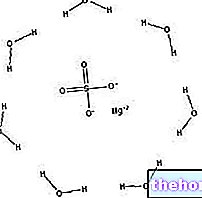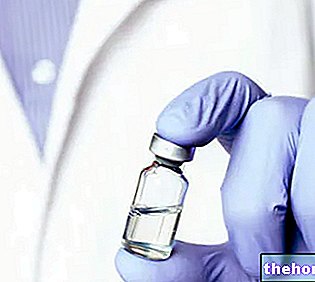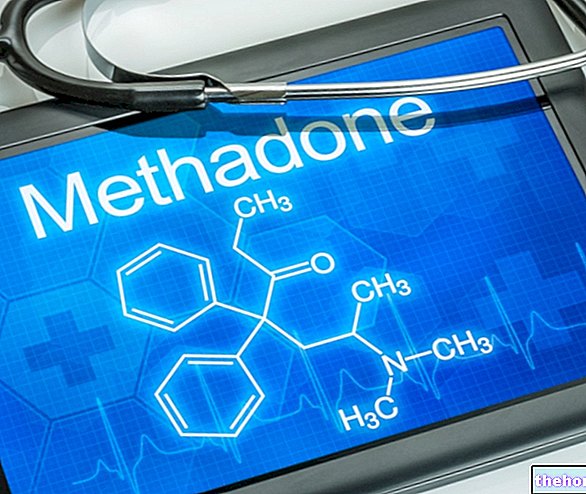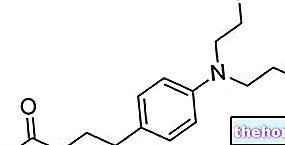Definition
Milk allergy is defined as an abnormal and exaggerated immune response of the organism following the ingestion of milk or dairy products in general. Normally, when we talk about milk allergy, we refer to cow's milk; however, many people are also allergic to goat, sheep and buffalo milk. Still, some children who are allergic to cow's milk are also allergic to soy. Milk allergy is one of the most common pediatric allergies, which often tend to resolve within three years of a child's life.
Causes
Milk allergy, as happens with allergies in general, sees the triggering cause in a malfunction of the immune system, which identifies milk proteins as harmful substances for the organism (allergens), therefore to be eliminated.
- Risk factors: bottle feeding, atopic dermatitis, family history
Symptoms
The symptoms of milk allergy appear after a few minutes or a few hours after the consumption of milk or dairy products: intestinal colic, abdominal cramps, diarrhea, dyspnoea, rash, watery eyes, hives, blood in the stool, cough and vomiting are the most common symptoms.
- Complications: constriction of the airways, flushing of the face and, in severe cases, anaphylaxis (dangerous reaction to food, which can lead to death from respiratory failure)
The information on Milk Allergy - Milk Allergy Treatment Medicines is not intended to replace the direct relationship between health professional and patient. Always consult your doctor and / or specialist before taking Milk Allergy - Medicines for the Milk Allergy Treatment.
Medicines
Before treating the drugs and treatments useful to counteract the symptoms of milk allergy, let's take a step back so as not to confuse this condition with milk intolerance: while allergy manifests itself with the development of antibodies against milk proteins. milk (only a very small amount of product is needed to trigger the immune reaction), milk intolerance consists in the deficiency of an enzyme (lactase), involved in the digestion of lactose (it does not affect the immune system).
Fortunately, it is observed that most milk allergies arise at birth, or a few months later, but tend to regress spontaneously at the age of three; however, milk allergies can also last a lifetime.
In any case, the only way to prevent milk allergy is the absolute deprivation from the diet of all foods containing milk or milk derivatives: clearly, considering that many food products are formulated with cow's milk, there is an involuntary risk of to take them, therefore favoring an allergic reaction (in sensitive subjects). For this reason, milk allergy sufferers must pay particular attention to the list of ingredients on the label.
When a milk allergic unintentionally consumes dairy products, the body, recognizing milk proteins as allergens (harmful substances), triggers a violent immune reaction against them: the administration of antihistamine drugs is the therapy of choice to alleviate the symptoms and alleviate the discomfort caused by allergy to milk.
As previously analyzed, the organism of a subject particularly sensitive to milk can trigger, following its ingestion, an extremely violent reaction, such as to endanger even his own life. We are talking about "anaphylaxis, a" clinical emergency in which the patient must be promptly treated with an injection of adrenaline.
Research is testing a new method (immunotherapy) for the treatment of food allergies in general (including milk allergy), which will be tested shortly.
The following are the classes of drugs most used in the therapy against milk allergy, and some examples of pharmacological specialties; it is up to the doctor to choose the most suitable active ingredient and dosage for the patient, based on the severity of the disease, the state of health of the patient and his response to treatment:
The only cure for milk allergy is the absolute removal of milk and dairy products from the diet. The drugs listed below are useful for relieving symptoms, but NOT for treating milk allergy.
Antihistamines:
- Levocetirizine (eg. Xyzal, Levocetirizina SAN): the antihistamine drug is indicated to relieve hives and itching that often accompany allergic reactions to milk. Take the drug at a dosage of 5 mg, orally, in the evening. Consult the doctor before taking the drug.
- Clemastine (eg. Travegil): for the treatment of allergic reactions, including allergies to milk, it is recommended to take the drug at an initial dose of 1.34 mg, to be taken orally in a double daily dose. Do not exceed 2.68 mg orally three times a day.
- Diphenhydramine (eg Aliserin, Diphenes C FN): anticholinergic and antihistamine drug particularly suitable for the treatment of allergic reactions to milk and other substances in children. For children between 1 and 12 years of age, it is recommended to take 5mg / kg / day or 150mg / m2 / day, by mouth or intramuscularly, dividing the load into several doses equally distributed over 6-8 hours. Do not exceed 300 mg within 24 hours. In acute allergic reactions, the drug can be administered intramuscularly or intravenously at a dose of 1-2 mg / kg (max. 50 mg).
- Chlorpheniramine (eg Trimeton): for the treatment of uncomplicated allergic reactions to milk, it is recommended to take the active ingredient at a dose of 5-20 mg, intravenously, intramuscularly or subcutaneously, in a single dose. Do not exceed 40 mg per day. The drug is also available in the form of a syrup, immediate-release or gradual-release tablets. Consult your doctor for the choice of the most appropriate drug preparation. The drug is also available in combination with glucocorticoids, to treat the more serious symptoms resulting from the ingestion of milk or derivatives in a subject who is allergic to it.
- Bromfenhydramine (eg Dimetane, Ilvin): start therapy with a drug dose of 4-8 mg, to be taken orally every 6 hours, or when needed. Some patients can take the drug only twice a day: the dosage must in fact be established on the basis of the severity of the allergy and the patient's response. For slow-release tablets, take 6-12 mg of active once or twice in the day. within 24 hours, or as needed. Do not exceed 24 mg of active per day. It is also possible to take the drug intramuscularly or intravenously (generally reserved for severe cases): in this case, it is recommended to start therapy with a drug dose of 5-20 mg every 6-12 hours. Do not take more than 40 mg of the drug parenterally. For children under the age of 12, the dose should be reduced: consult your doctor.
- Promethazine (ex: Promet NAR, Farganesse, Fenazil): antihistamine drug indicated for allergic reactions to milk or other substances. Orally or rectally, take 12.5 mg of the drug before a meal and 25 mg in the morning as needed. Alternatively, take a single 25 mg dose in the morning, or 6.25-12.5 mg of the drug three times a day based on the severity of symptoms. Consult your doctor.
Glucocorticoids: indicated for the treatment of severe symptoms of milk allergy, which occur following the intake of milk or derivatives in an allergic person.
- Triamcinolone (eg Kenacort): for the treatment of allergic reactions due to milk ingestion, it is recommended to take the drug at the indicative dose of 8-12 mg per day, orally. Some patients require a higher dosage of the drug.
- Prednisone (eg. Deltacortene, Lodotra): to treat the moderate and severe symptoms associated with milk allergy it is recommended to take the drug at the indicative dose of 20-30 mg. Consult your doctor before taking the drug. of anaphylaxis, take 50 mg of the drug by mouth, possibly dividing the load into several doses.
Catecholamines for the treatment of complications from milk allergy: in subjects particularly sensitive to milk allergies, even a small amount of ingested dairy product can trigger a frightening allergic reaction which, in the medical field, is defined anaphylaxis. The first therapeutic measure to consider is the administration of adrenaline, to be carried out within the shortest possible time from the appearance of the first symptoms.
- Adrenaline or Epinephrine (eg. Jext, Adrenal, Fastjekt): the drug is a powerful muscle vasodilator, useful for preventing airway obstruction in case of anaphylaxis, even in the case of severe allergic reactions to milk; patients who they should always carry an adrenaline syringe for emergency self-injection. For dosage: read the article on drugs for the treatment of anaphylaxis.
PLEASE NOTE: even delactosed milk causes allergy in a milk allergic: the subject is allergic to milk proteins, not lactose!
Milk, Dairy Products and Cheeses Asiago Brie Burrata Caciocavallo Rennet Camembert Cheddar Milk Cream Crescenza Emmental Feta Milk Flakes Fontina Herbal Cheeses Lean Cheeses Cheeses rich in calcium Gorgonzola Gouda Grana Padano Gruyere Kéfalair Adapted milk Artificial milk Condensed milk Asphyxiated milk Goat's milk Sheep's milk Rice milk Soy milk Powdered milk and concentrated milk Skimmed and semi-skimmed milk Lactose-free milk Milk Vegetable milk Dairy products Lerdammer Mascarpone Montasio Buffalo mozzarella Mozzarella Whipped cream Cooking cream Fresh cream Parmigiano Reggiano Pecorino Philadelphia Primo Sale Provolone Ricotta Robiola Roquefort Scamorza Sottilette Squacquerone Taleggio Tomino Yogurt OTHER ARTICLES MILK AND DERIVATIVES Categories Alcoholic foods Meat Cereals and derivatives Sweeteners Sweets Offal Fruit Dried fruit Milk and derivatives Legumes Oils and fats Fish and fishery products Cold cuts S pezie Vegetables Health recipes Appetizers Bread, Pizza and Brioche First courses Second courses Vegetables and Salads Sweets and Desserts Ice creams and sorbets Syrups, liqueurs and grappa Basic preparations ---- In the kitchen with leftovers Carnival recipes Christmas recipes Light diet recipes Women's Day, Mum, Dad Recipes Functional Recipes International Recipes Easter Recipes Recipes for Celiacs Recipes for Diabetics Recipes for Holidays Recipes for Valentine's Day Recipes for Vegetarians Protein Recipes Regional Recipes Vegan Recipes























-nelle-carni-di-maiale.jpg)




